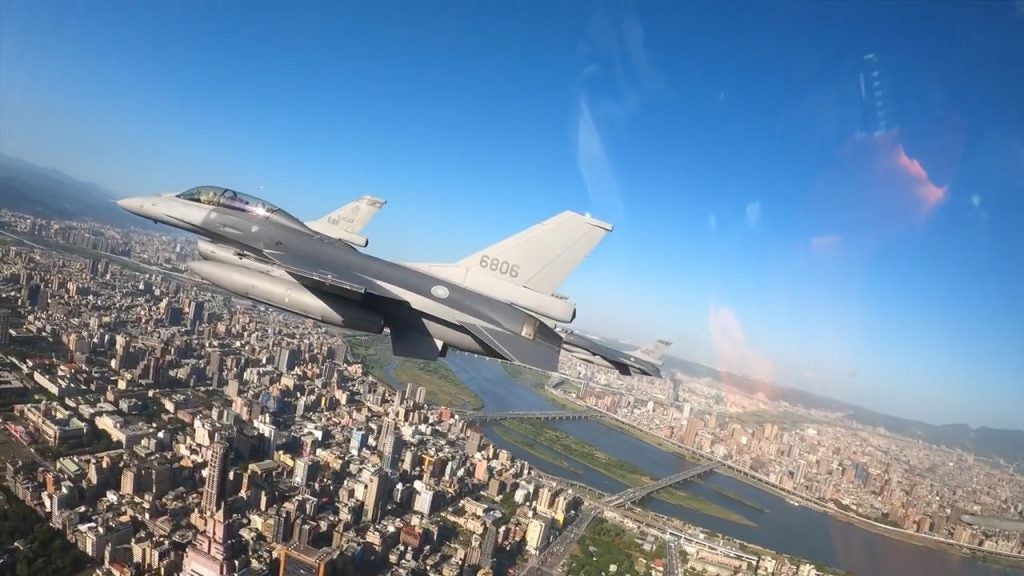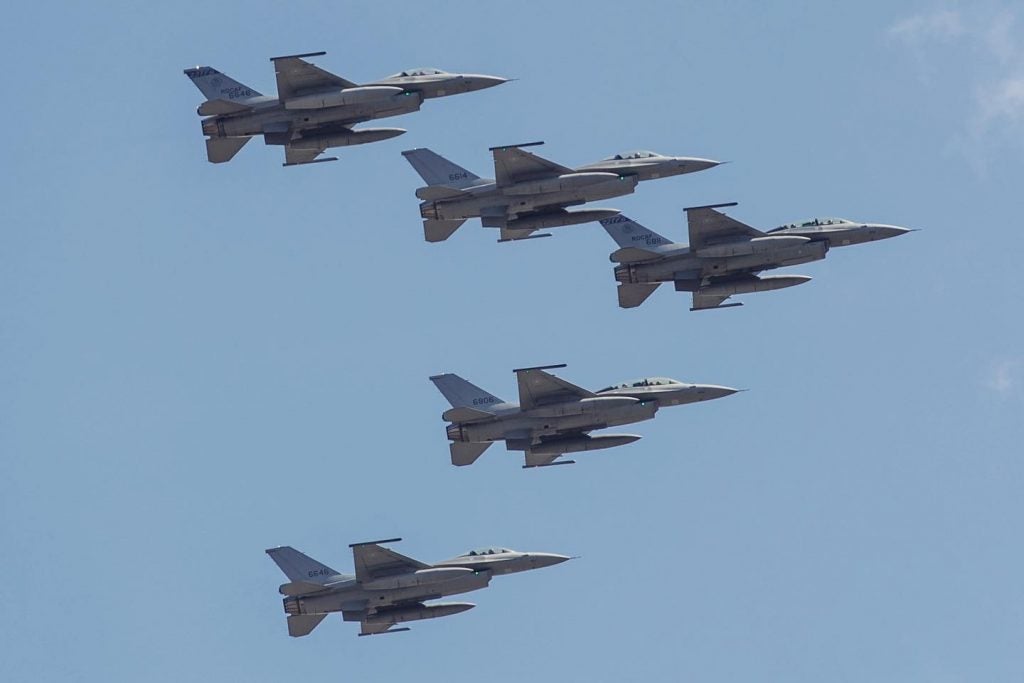Report: Taiwan Seeks Accelerated Delivery Of New-Build F-16Vs
Taiwan’s government is seeking to accelerate the delivery schedule of 66 new-build F-16Vs it has on order, with officials requesting the United States deliver the first batch of aircraft in 2022, a year ahead of the original schedule. Additionally, Taipei has requested that more aircraft be delivered in the first batch of aircraft handed over.
According to a 16 October report by CNN, discussions between Washington and Taipei on accelerating deliveries precede the series of massive PLAAF aerial incursions into Taiwan’s Air Defense Identification Zone over the weekend of the National Day of the People’s Republic of China. Those incursions, however, have now fueled greater interest on Taipei’s part on accelerating the arrival of the new aircraft.

A Taiwanese official that spoke to Taiwan’s Liberty Times noted that the first F-16Vs made at Lockheed Martin’s new F-16 production facility in Greenville, South Carolina, were expected to be completed in 2022. According to the official, the more immediate threat Taiwan faces compared to other nations with F-16V orders such as Bahrain, Slovakia and Bulgaria justified the move up the priority list, with the Republic of China Air Force also having accelerated the upgrading of its current F-16s to F-16V standard in the face of the incursions.
Institute for National Defense and Security Research analyst Shu Hsiao-huang stated to the Central News Agency that accelerated delivery of the new F-16Vs would not complicate ROCAF maintenance demands, thanks to the existing relationship between Evergreen Aviation Technologies and General Electric, manufacturer of the F110-GE-129 engines powering the new-build F-16Vs (the upgraded F-16s are powered by Pratt & Whitney F100s). Shu noted that the basing of the new F-16Vs at Chihhang Air Force Base in Taitung would improve the ROCAF’s ability to respond to the most urgent threats from Taiwan’s southwestern and southeast, and reduce the strain on older ROCAF types like its F-5 Tiger II fleet.
However, Ministry of National Defense spokesman Shih Shun-wen refused comment on the reports at a Tuesday press conference. Instead, he said that both upgrading of existing F-16s and procurement of the new-build F-16s was progressing as planned, with the ROCAF working to ensure the program stayed on schedule.

